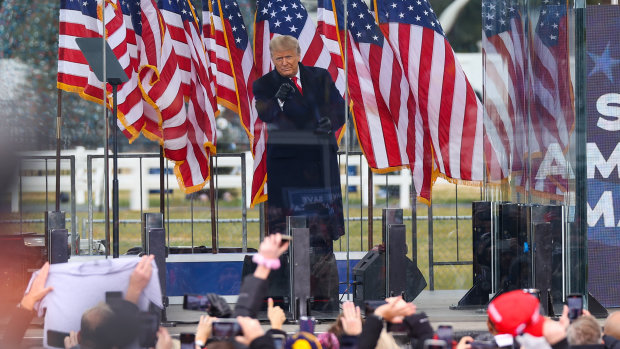The right to freedom of expression cannot be interpreted as a right to incite crime or violence.
Given all the words spoken about free speech in the past week or so, it would be easy to leave the matter behind and move onto something new like our quarantine system. But as the son of a World War II veteran who fought fascism and spent the rest of the war in a prisoner-of-war camp, it would dishonour him to let some of the absurd and dangerous arguments go unchallenged.
Pre-war Nazi Germany taught us that fascism does not spring up overnight. It gathers momentum over time as good people feel too intimidated to speak up, or decide that to do so would give fascists the notoriety they crave.
Neither Prime Minister Scott Morrison nor acting Prime Minister Michael McCormack was willing to criticise an American president for inciting violence by white supremacists who broke into the Capitol, ransacked offices of members of Congress and killed a policeman – though they did condemn the insurgents.
The harsh utterances of a US president in an American political contest are not ordinarily an Australian leader’s business, but a world leader inciting violence certainly is. Our leaders wouldn’t hesitate to condemn an ayatollah for inciting violence against Westerners. Nor should they.
When ethical matters like this arise, I usually ask myself: “What would Bob Hawke have done?” We have a ready-made answer. When China’s leaders ordered violent repression of students at Tiananmen Square in 1989, Hawke, in tears, condemned them utterly and announced, with no reference to cabinet, that the 40,000 Chinese students in Australia could stay permanently.
Read the article by Craig Emerson in the Australian Financial Review.

